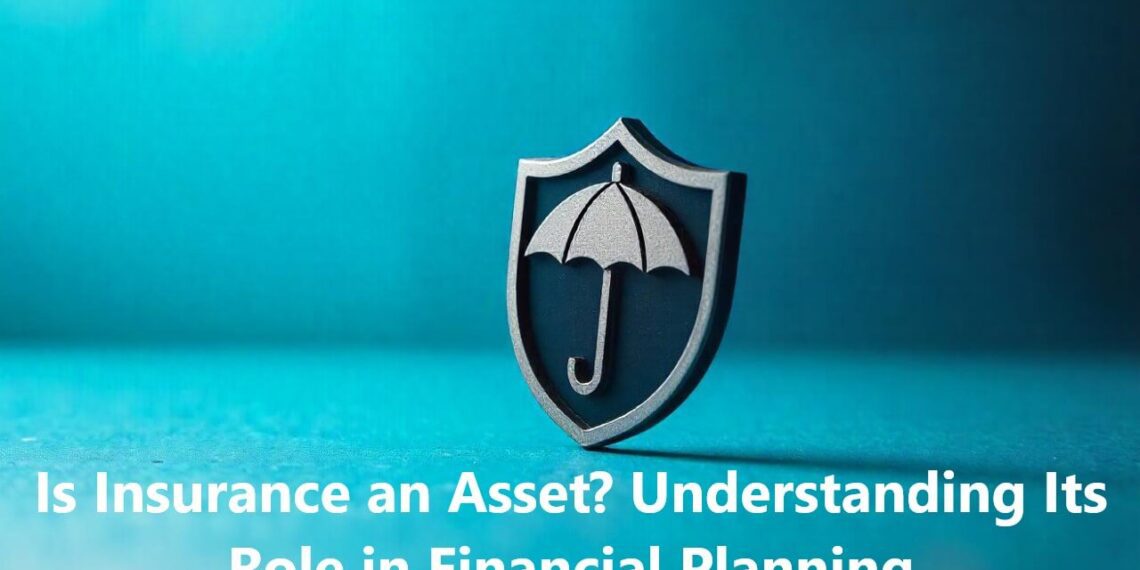Insurance is an important part of your financial plan but most people ask whether it is an asset or not. When you use the word “asset” you usually mean something that will make money in the long run. But insurance isn’t property, or stock, but it is instrumental in protecting wealth and creating financial stability. In this article, we’ll look at insurance as a kind of asset, what types of insurance offer value, and how they can work for your portfolio.
What Is an Asset?
Let’s explain the term before diving into insurance as an asset. Assets are anything that’s worth using in the service of your financial future. Assets can be classified into:
- Property: Real Estate, Cars, Jewelry etc.
- Immaterial Assets: Physical assets like investments, patents or savings account.
Things usually produce money, or go up in value, or provide some economic gain over time.
Understanding Insurance
Insurance is a relationship between a person and an insurer where the policyholder pays a premium to be financially covered against a risk. Common types of insurance include:
- Life Insurance
- Health Insurance
- Property and Casualty Insurance
- Disability Insurance
- Business Insurance
Is Insurance a Good Asset?
Insurance isn’t quite an asset but it is economic in a number of ways:
- Life Insurance as a Financial Instrument
- Cash Value Part: These policies build cash value over time which you can borrow or cash out.
- Estate Planning: The death benefit provides assets to heirs for a comfortable death so it is an important asset to plan for.
- Health Insurance Protects Wealth Health insurance doesn’t create wealth, but it stops you from losing money by paying for health care. It’s a layer of insurance that, indirectly, protects your wealth from you burning savings or trading investments.
- Property Insurance Safeguards Tangible Assets Insurance for property covers valuable physical things such as your house, car or office building. Without insurance, repairing or replacing such property would be financially crippling.
- Disability Insurance Secures Income You have one of your best assets, income. Disability insurance covers you if you become incapacitated due to injury or illness, so you’ll still have money.
Why it’s A Good Idea to Use Insurance as a Financial Tool
Strategically, insurance helps you keep money in the bank and build wealth:
- Risk Mitigation: Insurance reduces the chance of unforeseen events and protects your investment portfolio.
- Liquidity: Some insurance policies such as whole life policies are liquid via loans or withdrawals.
- Wealth Transfer: The money in life insurance is passed on quickly to the next generation without taxation and complications.
- Financial Planning: Insurance gives you protection to invest or save knowing that you won’t lose money.
Different Types of Insurance and Asset-Like Characteristics of These Types of Insurance
| Type of Insurance | Asset-Like Qualities |
|---|---|
| Life Insurance | Money, in case of death, tax advantages. |
| Health Insurance | Reverses financial exhaustion in case of healthcare. |
| Real Estate | Covers real property against theft. |
| Disability Insurance | Ensures income continuity. |
| Long-Term Care Insurance | Pays for eldercare while saving and investing your money. |
Is Insurance an Investment?
Insurance isn’t an investment but it can be asset-like. Investments are for the long run – insurance is for the short run. But there are some policies, such as variable life insurance or indexed universal life insurance, which combine investment and insurance.
How to Make Insurance Part of Your Financial Plan
- Compare Your Needs: Figure out what your risks are and select insurance products that take care of those risks.
- Compensation for Insurance and Investments: Divide the assets between conventional assets and insurance to build a balanced financial portfolio.
- Check Policies on a Regular Basis: Make sure your coverage changes with your changing financial plans.
Final Thoughts
So, is insurance an asset? Answer: It depends on your definition of its place in your money game. Insurance might not be an asset class like shares or real estate, but it is protection, liquidity and wealth transfer, which make it a valuable addition to any financial plan. With knowledge about the “assets” of insurance, you can make the most of it to secure long-term financial security and peace of mind.
With insurance in your portfolio, you can protect what you have, make the best decisions for the future, and construct a comprehensive financial plan to weather the storms of life.





